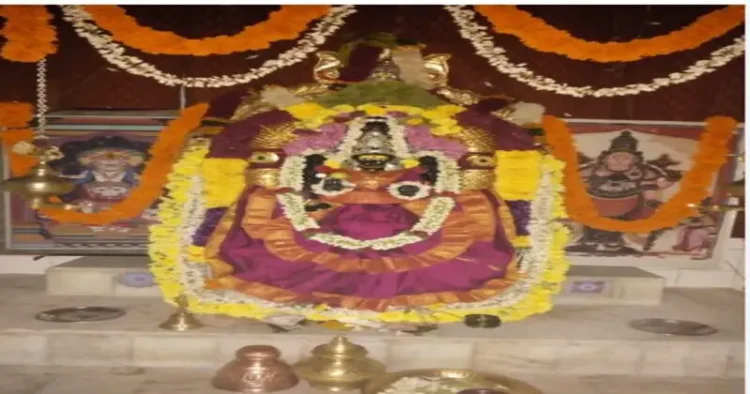The Hindu Religious and Charitable Endowment (HR and CE), responsible for managing temples and preserving agamic customs, has faced criticism for allegedly prioritizing financial gains over the religious sentiments of devotees. Critics argue that instead of maintaining the temples and adhering to agamic principles, the department focuses on increasing entrance fees and other charges, disproportionately affecting less affluent devotees.
The incident at Sri Lakshmi Amman Temple, where devotees traditionally undertake a 48-day penance and perform the Irumudi Kattu ritual during the Sabarimala season, exemplifies the alleged disregard for religious practises. Devotees take a pledge to visit the Sabarimala Sannidhan and observe strict penance, including wearing specific colours, avoiding certain activities, and carrying the Irumudi Kattu on their heads until reaching the Sabarimala Sannidhan.
This year, the temple administration shocked devotees by displaying a notice board denying permission for the Irumudi Kattu ritual. Bharat Hindu Munnani state president RD Prabhu expressed dismay over the decision and planned to meet the temple’s Executive Officer (EO) to address the issue. Prabhu asserted that if talks failed, protests would be organised.
However, the situation took a turn when the temple administration promptly withdrew the notice board, restoring the customary practise of allowing the Irumudi Kattu ritual. Devotees and Hindu organisations expressed gratitude to the intelligence wing of the police, the Greater Chennai Police Commissioner, and the temple management for reconsidering the decision.
The controversy surrounding the Irumudi Kattu ritual reflects the ongoing challenges faced by Hindu devotees in preserving their religious customs. Critics argue that interference by government bodies in matters of religious practises has become a recurring issue, leading to protests and backlash from the Hindu community.
As the incident unfolded, devotees and Hindu organisations underscored the importance of protecting religious traditions and accused the HR and CE of overstepping its role. The swift restoration of the ritual’s permission was seen as a victory for devotees and a reminder of the need to safeguard religious practises from unwarranted interference.
The Sri Lakshmi Amman Temple incident has also ignited discussions about the broader implications of government interventions in matters of faith and the necessity of maintaining a balance between administrative responsibilities and respecting religious sentiments.
The episode serves as a microcosm of the larger debate surrounding religious freedom and the role of governmental bodies in managing religious institutions. Devotees hope that such incidents will prompt a more thoughtful approach from authorities, ensuring the preservation of religious customs without compromising the sanctity of sacred traditions.




















Comments